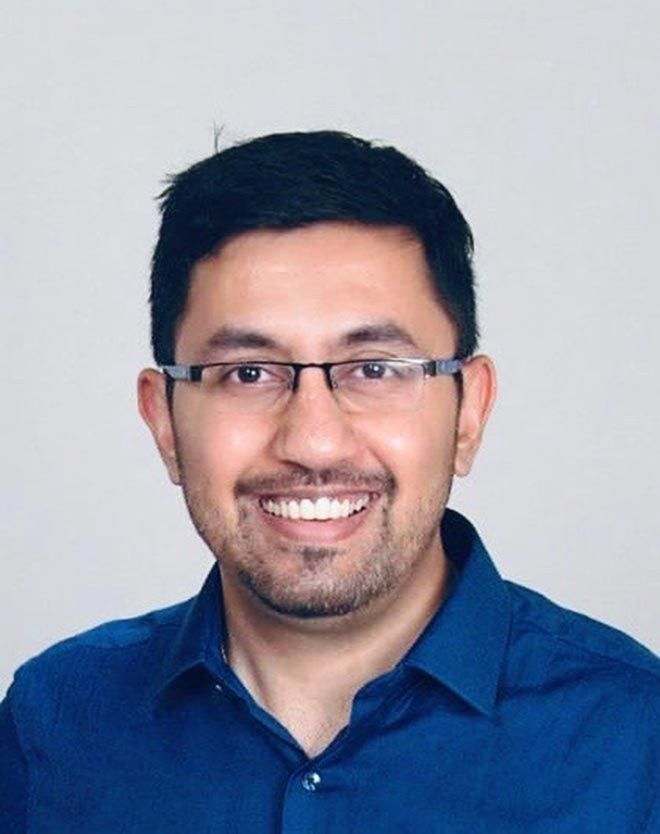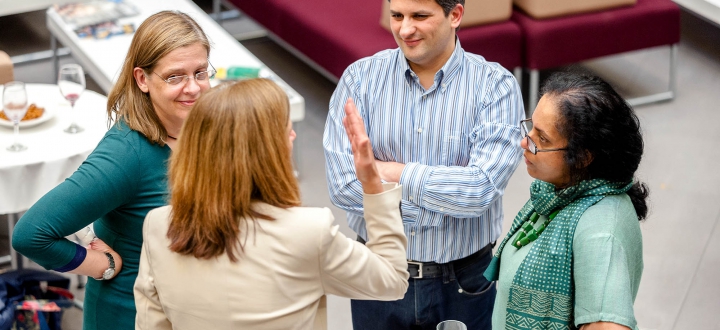Rounak Kharait
Catching up with...Rounak Kharait

Former MSc Renewable Energy Engineering student, Rounak Kharait, graduated in 2010 and has worked for over a decade in renewable energy. Rounak is now the Director of Solar Energy Assessments at DNV GL.
What is a typical day like for you?
A typical day includes managing a team of solar energy analysts and their workload to address the requirements set out by the project financing team. We are trying to assist banks to lend money to some of the largest solar and solar plus storage (solar panels with battery storage) projects/portfolios in US and the world. Some part of my day is dedicated to answering questions about long term feasibility, durability and uncertainty associated with modelling solar energy projects.
I also spend time writing papers, reviewing journal articles and being a contributing member of the solar photovoltaic community. I have several publications in the Institute of Electrical and Electronic Engineers and have recently been selected to be a US Technical Advisory Group member to update the IEC 61724-3 "Photovoltaic system performance - Part 3: Energy evaluation" method. I like to end my day with some exercise and spending time with my one-year-old daughter and my wife.
What's been your career highlight so far?
My latest selection into the US Technical Advisory Group for energy assessment has been one of the highlights of my career. Along with this, I would say working on energy assessment of the world's largest solar plus storage (Gemini Solar plus storage) and Wheatridge Trifecta (solar plus wind plus storage) projects has made my profile unique. Another highlight has been to develop highly functional teams from ground zero to be able to respond to a continuous workload.
Why did you choose to study at Kingston?
After getting my undergraduate degree in Mechanical Engineering from Pune University, India, where we developed a novel solar thermal storage system; I was keen on developing my career in understanding renewable energy engineering. I was looking for higher education in an industry application based course; and the MSc Renewable Energy Engineering fit the bill perfectly. It had the perfect balance of fundamentals and application in real life. We learnt about solar power, wind power, fuel cell-based power projects and understand implementation from concept to commissioning. This made the coursework at Kingston University really unique.
Studying at Kingston helped me lay the foundation for my career in solar industry. After graduating, I worked for three years at a Thermax Limited (EPC) in India helping build solar projects. The Kingston University graduate degree coupled with my experience got me accepted to study solar thermal storage materials at Colorado School of Mines. After that, I have worked with Leidos Inc., NextEra Energy Resources, and now at DNV GL the worldwide consultant for renewable energy projects. My time at Kingston prepared me to understand the concepts of sustainable energy when it was in its novice stage in 2010. The invaluable experience I have gained at Kingston has given me a better understanding of the market and tips on how to develop projects within this new field, as well as a competitive edge over other engineers!
What did you learn at Kingston that has helped you most in your career?
Getting my master's degree at Kingston University really helped me get set up for the future. Firstly, the coursework helped in laying the foundation of application based renewable energy engineering. Secondly, the 1-year rigorous curriculum taught me to multitask and be as efficient as I can. I was going through a tough phase in life while I was studying at Kingston University, but I managed to remain focused and determined to get an A grade in all the subjects I took as a part of the course. I think I was the only person in the class to have managed to get A grade in all subjects. The skill sets I learnt at Kingston has helped me tremendously; and I use the principles I learnt almost every day.
What's your favourite Kingston memory?
Apart from just living next to Richmond Park and enjoying the exquisite walks and sunsets, one of my fondest memories at Kingston was when I gave a talk about my undergraduate research on solar drying and thermal heat storage. That project had won a couple of awards during my undergraduate studies in India, and it was great to see the feedback I received from my colleagues and professors at Kingston University. I managed to use the same project and analyse the thermal loss in Ansys CFX to validate the results!
My second favourite memory was working on our wind energy engineering final project, where my team and I went to Hull City to measure the wind speed at one of the sites identified for wind power project. We also went to the Hull City Council to ask for required local permits required for installing a wind project at the selected site. The officers at the council were very helpful and guided us on next steps. These are the exact steps that are followed for an actual project implementation, so it was fantastic to get that exposure.
Tell us something no one would guess about you.
I am an amateur poet, writer and astronomer. The astronomy club, Antariskh, that I co-founded in 2009 at VIT, Pune, now has over 500 members, and has its own YouTube channel. I am also a level 4 Tennis player.
Share your news
We love hearing from all Kingston graduates – no piece of news is too big or small, so whatever you have done or are about to do, email us and let us know!

